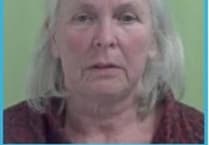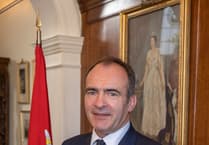The government is working on better ways to fill vet vacancies in the island.
Clare Barber, Minister for the Department of Environment, Food and Agriculture, was asked in the House of Keys what action is being taken to address vacancies and what immigration barriers she is aware of.
She said: ‘Vacancies within the veterinary profession across the United Kingdom and the Isle of Man alike are as a result of workforce shortage and are a matter of concern.
‘Whilst this is not a new phenomenon, the issue has been exacerbated significantly by recent events, including the additional pressures on the profession brought about by the Covid-19 pandemic, changes with regards to the employment of EU vets caused by Brexit and an increase in demand for vets driven by a surge in pet ownership in the UK and Isle of Man.
‘Post-Brexit there has been a significant increase in certification requirements, which has also significantly increased the workload for some vets.’
She explained that veterinary surgeons from the UK generally require a work permit to work in the island and those from outside the UK require a visa.
All veterinary surgeons who work in the Isle of Man are required to be a member of the Royal College of Veterinary Surgeons.
Data released by the Royal College of Veterinary Surgeons has revealed that the annual number of registrants coming to work in the UK fell by 68% from 11,032 in 2019 to just 364 in 2021.
The retention rate for vets working in practice is also poor.
‘The chief veterinary officer has been in discussion with the UK chief veterinary officer to share concerns about recruitment of veterinary surgeons and specifically to make them aware of the situation in the Isle of Man with regards to recruitment into both private practice and government veterinary positions.’ Mrs Barber said.
‘Other crown dependencies all have similar concerns and issues.
‘The veterinary profession and the UK Government have been monitoring the situation and have introduced measures aimed at mitigating against shortages.’
These include modifying language testing requirements, introducing a new certification support officer role to work under the direction of official veterinarians, and opening up new vet schools and course places and schools ‘to boost home-grown supply’.
The British Veterinary Association is warning that ‘there is no single silver bullet solution to solving these issues’.
The minister added: ‘Officers from the department have set up meetings between the island’s veterinary practices and the immigration office to try and organise help with visa applications.
‘The department has also engaged with the Locate Isle of Man team and Department for Enterprise to gain assistance with veterinary practices to advertise jobs and help with relocation costs.
‘In the Council of Ministers, we are looking at what policy levers we have at our disposal to help with the challenges of getting key professionals to relocate to our island in the short and longer term.’
Douglas North MHK David Ashford noted that vets in the island are currently expected to work longer hours, which is ‘not sustainable in the long-term’.
To this, Mrs Barber said: ‘We have a good number of very committed veterinary surgeons in the Isle of Man but we absolutely do need more.
‘The work they provide is invaluable.’




